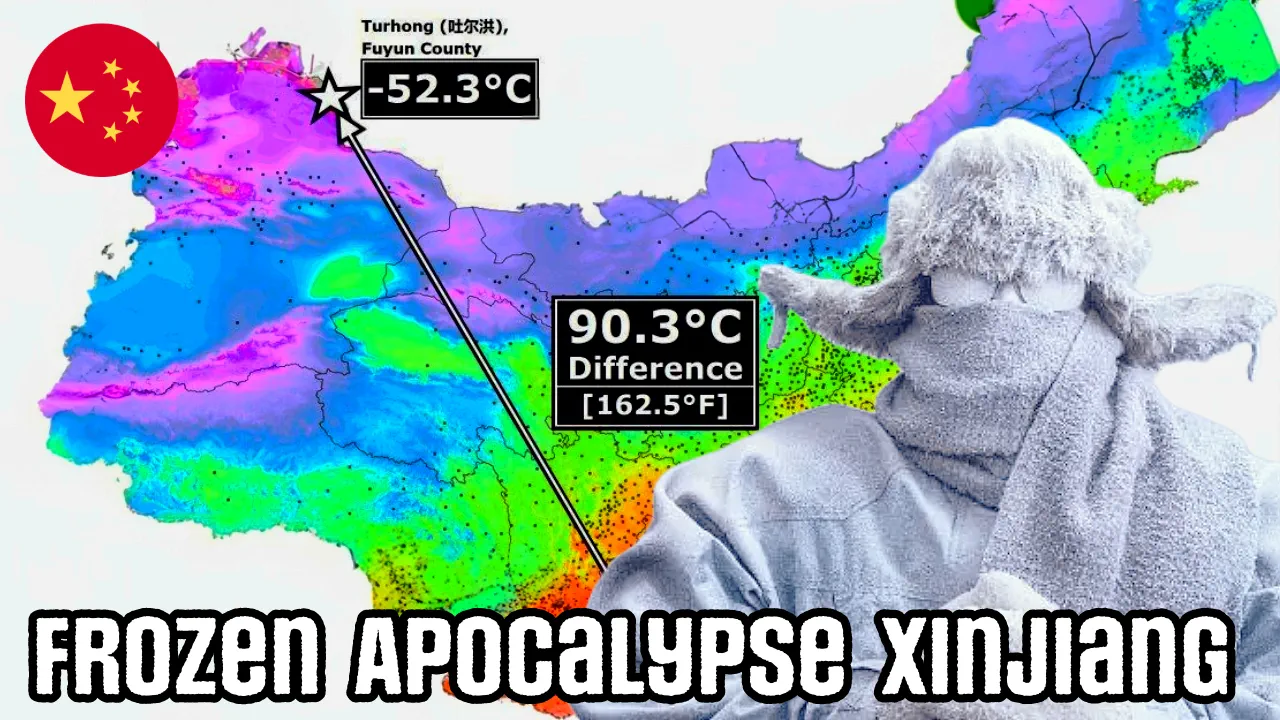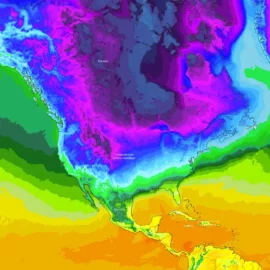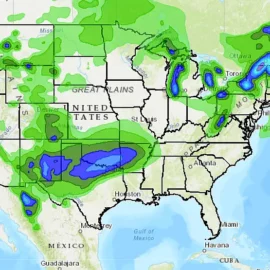
China Frozen Apocalypse : Xinjiang Shatters Temperature Records -52.3°C
❄️ Xinjiang Uyghur Autonomous Region is reeling from an unprecedented deep freeze, with temperatures plummeting to a bone-chilling -52.3°C in Fuyun County. This historic low, surpassing a record held since 1960, has sent shockwaves across the nation, disrupting travel and triggering emergency responses amidst the Lunar New Year festivities.
Northern Xinjiang is in the grip of an Arctic onslaught, with temperatures nosediving by a staggering 35 to 46°C in just three days. The frigid blast has claimed the lives of countless birds and wreaked havoc on transportation networks, leaving a trail of chaos and destruction in its wake.
In Tuerhong Township, Fuyun County, the mercury bottomed out at an unprecedented -52.3°C on February 18, eclipsing the previous record set over six decades ago. This chilling milestone underscores the severity of the cold snap, which rivals China's coldest-ever recorded temperature observed in 2023.
The onslaught of extreme weather has paralyzed over 853 kilometers of roads in Altay, prompting a massive mobilization effort with 47 vehicles and 86 rescuers deployed overnight to combat the snow and ice.
The transport ministry reports the closure of 43 road sections and 623 toll stations across Inner Mongolia, Xinjiang, Liaoning, Jilin, and Heilongjiang due to the hazardous conditions.
A high-level warning for freezing conditions has been issued by the National Meteorological Center, anticipating further temperature drops of 8 to 12°C across China until Thursday, February 22. Additionally, Hunan, Guizhou Province, and northeast China brace for temperature plummets exceeding 20°C, exacerbating the wintry onslaught.
Harbin has issued a red blizzard warning, the highest level in China's four-level warning system. In neighboring Gansu Province, over 200 highway entrances were closed due to heavy snowfall. China's national weather forecasting agency issued an orange blizzard warning, the second-highest level, and extended the warning for parts of Jinhangang and Inner Mongolia.
The abrupt change in weather conditions over the past week, from fog to the second warmest October in decades, contributed to the severity of this snowstorm. The central meteorological agency predicts a sharp drop in temperatures, emphasizing the need for swift adaptation to the changing weather patterns.
As Northern China contends with this early arrival of winter, it serves as a stark reminder for both the public and authorities to remain vigilant and adaptive in the face of evolving climatic conditions.
Founder and chief forecaster of the Pogodnik service. He has many years of experience in the meteorological service. He is the author of numerous scientific publications and popular articles about the weather.




